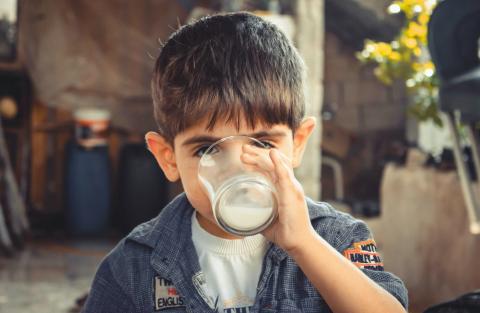Reactions: report calls for an end to marketing practices employed by the formula milk industry
A series on breastfeeding published today in The Lancet highlights the economic and political power of formula companies, examines their marketing practices and the impact this has on the health of mothers and children.

Freepik.
Robert Boyle - leche fórmula EN
Robert Boyle
Reader in Paediatric Allergy at Imperial College London
In this new report, authors from the World Health Organization and academic and non-governmental organisations around the world highlight the misinformation directed at families by the formula industry, and the political, social and cultural power of the formula industry to reshape parents’ decision-making in order to increase sales. Marketing of formula milk can be very destructive for humanity, because successful formula marketing depends on weakening the bond between a mother and baby in order to undermine breastfeeding.
We know that secure, responsive bonding between mothers and their babies is the foundation of human development and of the societies we live in. By directly and aggressively working to undermine maternal confidence and offer inappropriate nutritional solutions to common worries, formula milk marketing threatens to reshape societies and undermine human development. For many decades this danger has been recognised, but the global response has been inadequate – breastfeeding has been almost eradicated from some cultures, and hundreds of thousands of infants have died unnecessarily as a consequence of allowing formula marketing to systematically undermine women's natural desire to breastfeed their own baby. In recognition of the special dangers associated with formula milk marketing, the authors of this new report call for a new, legally binding international agreement to better protect the world’s infants and their carers.
Robert Boyle declares income from employment by Imperial College London, from private paediatric allergy practice, for editorial work from Cochrane, Wiley and the British Society for Allergy and Clinical Immunology and for work as an expert witness in cases related to food allergy, including a class action against a formula company related to product claims. Dr Boyle’s employer Imperial College London has a research and innovation partnership with Nestle, which doesn’t directly involve Dr Boyle.
Daniel Munblit - leche fórmula EN
Daniel Munblit
Honorary Senior Lecturer at the National Heart & Lung Institute, Imperial College London
Many infant formula claims are poorly substantiated, suggesting that current legal protections for infants and their carers are inadequate.
The new Series on breastfeeding in The Lancet highlights the detrimental impact of exploitative formula milk marketing on the health and rights of families, women, and children. The authors stress the importance of breastfeeding and call for a more effective promotion, support, and protection of breastfeeding, including an international legal treaty to end exploitative formula milk marketing and political lobbying. This Series highlights the need for society to take a collective responsibility in supporting mothers to breastfeed, while addressing the barriers they face and ensuring they are informed by accurate information free from industry influence. The message from this Series in The Lancet should finally serve a wake-up call for the world.
- Research article
- Opinion
- Report
- Peer reviewed
- People



